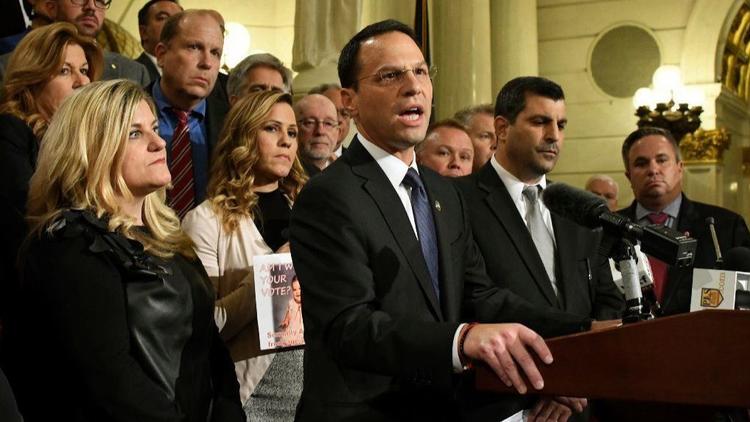Why Is Pennsylvania Concealing the Identities of 11 Accused Priests?
By Christine Schiavo
On Monday, the state Supreme Court ruled that the names of the 11 priests who challenged their inclusion in a statewide grand jury report on sexual abuse by 301 priests in the Catholic Church may be kept secret. The report, which was released in August, named accused priests in the six dioceses that the grand jury investigation covered, including Allentown, though nearly all the cases exceeded the statute of limitations for prosecution. The 11 priests argued that disclosing their names would damage their reputations and violate their constitutional right to due process. And the court agreed. Is the ruling a surprise? Not really. The court ordered the 11 names temporarily redacted before the report came out in August. During a hearing in September, the judges’ questions provided a glimpse into how they might rule. For example, Justice David Wecht asked why the state didn’t just accept the redacted report as the final version; and Justice Christine Donohue asked why it was necessary to name names. Why does the attorney general want to name names? Attorney General Josh Shapiro said concealing the names would be like ignoring some victims’ accounts. He also has said that the church – sometimes with the help of law enforcement – protected priests and covered up the crimes. Redacting the names, he said, enables those priests to remain in the shadows. Isn’t the constitutional argument valid? Yes. In an earlier decision, Chief Justice Thomas G. Saylor noted: "The right of citizens to security in their reputations is not some lesser-order precept. Rather, in Pennsylvania it is a fundamental constitutional entitlement." Is there a way to release the names and protect the priests’ rights? Shapiro’s office says there is, by recalling the grand jury or presenting its finding to a new panel, which would give the 11 priests a fair hearing. But two of the justices questioned whether the court had such authority, because it isn’t spelled out in the grand jury law. And the 11 priests’ lawyers said it’s too late to revisit the cases, because some evidence and some witnesses are no longer available. They also say that by labeling the clerics “predator priests” in the report, Shapiro stigmatized them as sex offenders though they have never been convicted of a crime. Is that the end of the argument? Legally it is. But Shapiro noted that while the order bars him from releasing the 11 names, it does not prevent the dioceses from doing so. If the church wants to be transparent, he said, the bishops should reveal all the accused priests. What are the ramifications of this decision? While the ruling only affects the case at hand, it raises questions about the grand jury system, which permits people to be accused though they are not charged with crimes. It comes at a time when a task force is reviewing the grand jury process.
|
.
Any original material on these pages is copyright © BishopAccountability.org 2004. Reproduce freely with attribution.
